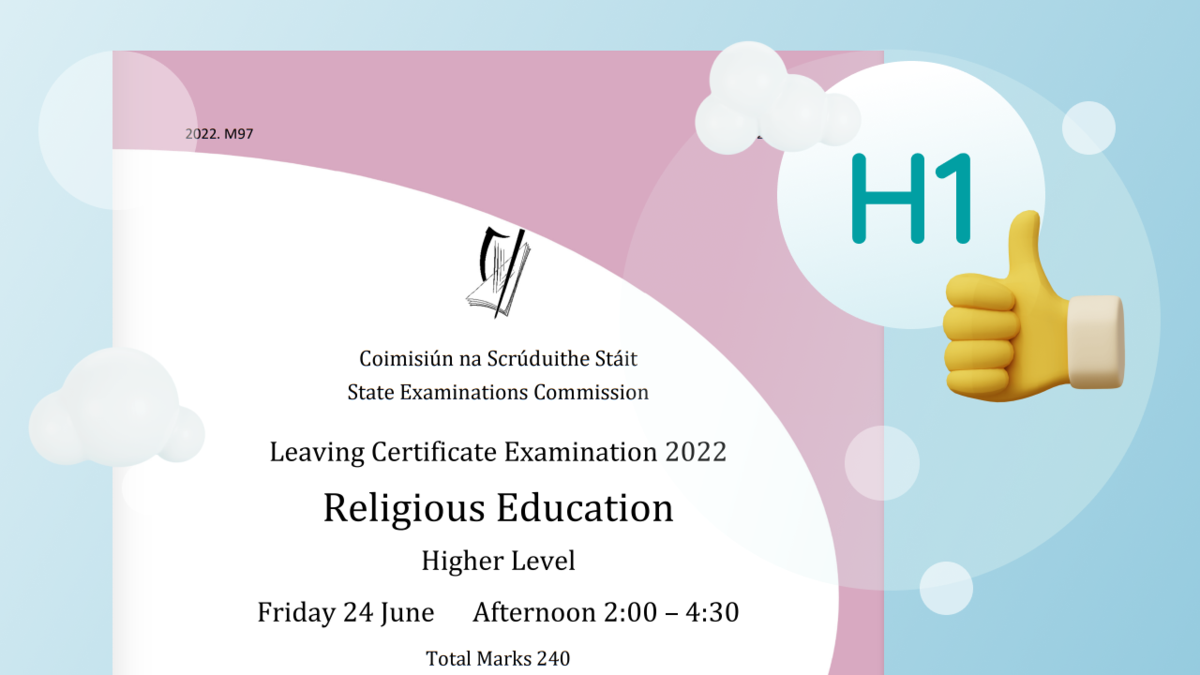People tend to see Leaving Cert Religious Education as an easy subject in which you simply have to say a couple of rosaries to achieve a good grade but this is not the case. It is as easy or difficult as any other course on the Leaving Cert but its main advantage is how interesting it is. You will be hard-pushed to find a more diverse or thought-provoking subject as religious studies will stimulate the mind and alter your opinions on many topics. This subject should be taken by any student who likes to think of themselves as a thinker.
20% of the course is completed as coursework and the other 80% is the written exam. The topic of the coursework is based on four prescribed titles from the Department of Education (you pick one to research). If completed properly, it will enable you to go into June’s exam with most of that 20% in your pocket.


















